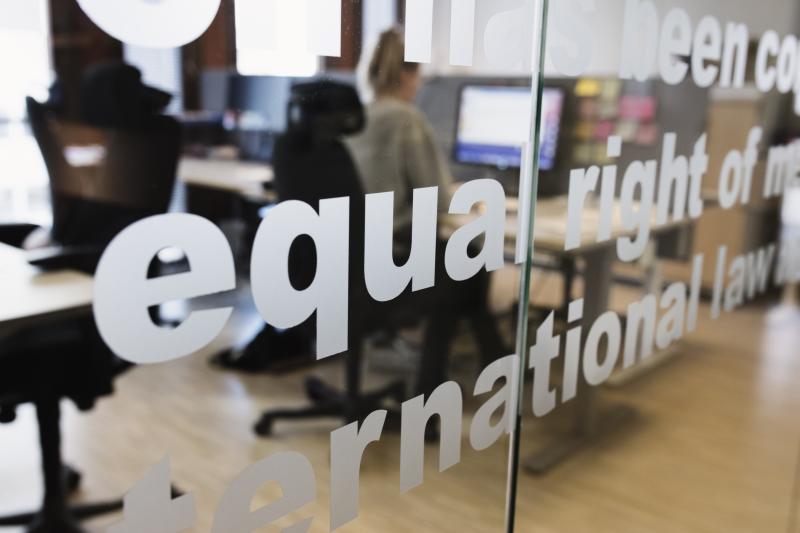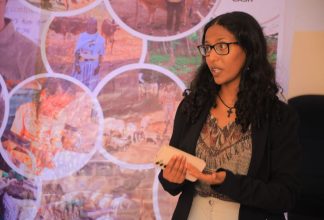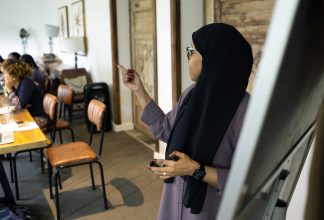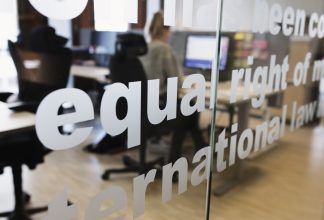Seeking consultants for capacity support to human rights organisations

Civil Rights Defenders is looking for consultants to provide tailored capacity support to the governance structure of selected human rights organisations in Ethiopia. Please read the Terms of Reference below.
TERMS OF REFERENCE
GOVERNANCE ASSESSMENT AND SUPPORT FOR CIVIL SOCIETY ORGANISATIONS
Contracting Party: Civil Rights Defenders
Reports to: Aklile Solomon, Africa Department
Project: Resilience and Protection for Human Rights Work in Ethiopia
1. BACKGROUND
1.1. ABOUT CIVIL RIGHTS DEFENDERS
Civil Rights Defenders is an international human rights organisation based in Stockholm, Sweden, that partners with and supports human rights defenders (HRDs) globally. It has extensive experience in supporting HRDs most at risk. Civil Rights Defenders working through flexible, context sensitive and, when needed rapid interventions to support local actors who are at the core of ensuring the respect of human rights.
Civil Rights Defenders works in the Africa region with the same mission of partnering with local HRDs and civil society to support local efforts that promote and defend human rights in the region. Civil Rights Defenders works closely with its local partners to create enabling internal capacity and external environment that ensure their continued presence and the impact of their work.
Civil Rights Defenders is an expert organisation that partners with and supports human rights defenders (HRDs) globally. We have extensive experience in supporting HRDs by working through flexible, context-sensitive, and, when needed, fast interventions in order to support local actors who are at the core of ensuring respect for human rights. Our vision is a world of democratic societies in which we all enjoy our civil and political rights.
Civil Rights Defenders works in the Africa region through close collaboration with local HRDs and civil society to support local efforts that promote and defend human rights in the region. We work to create an enabling internal capacity (skills, knowledge, and resources) and external environment that ensure the continued presence and the impact of their work.
Civil Rights Defenders has been partnering and working with local civil society organizations in Ethiopia with the aim of enhancing the role of human rights organizations and human rights defenders for an impactful participation in the protection and promotion of Human Rights in Ethiopia. With this objective, the project aims at contributing to create enabling environment for human rights work through increasing safety and organisational capacity of HRDs.
2. CONTEXTUAL BACKGROUND
Civil society organisations in Ethiopia have limited space to build their internal organizational capacity. The previous civil society proclamation that operated from 2009 to 2019, among other things, restricted access to funding for CSOs especially those working on human rights and democracy. The closed civic space during that decade also deterred human rights organizations from building strong organisational culture including structures of governance.
While the change in law has created some opening in the civic space, the investment on organisational capacity is very limited. CSOs are mostly engaged in project implementations whose impacts are external to their organisation. As a result, organisations have weak capacity in organisational governance including strategic planning, programming, administration, resource mobilisation and financial management.
Civil Rights Defenders has had organisational capacity assessments conducted for its partner organisations. One of the gaps identified by these assessments is in the governance structure. There are two types of civil society governance in Ethiopia; some CSOs are led by the board as the highest governing body while other organisations are members based led by a general assembly (GA) as the highest governing body and the board of directors below the GA in the leadership.
The board of directors and the executive director plays a crucial role in the strategic leadership of all CSOs. However, the selection of the board is not based on defined terms of reference outlining roles and responsibilities. Most organisations also struggle with board members that are busy or absent. Executive directors are also consumed with operational tasks within the organizations that limits their role in strengthening systems. The leadership of these organisations do not provide strategic guidance affecting their long-term organisational capacity.
Resilient, agile and capable organisations require strong leadership – in a fragile socio-political environment, human rights organisations need strategic, creative and well developed governance structures that can increase their impact. Therefore, it is necessary to strengthen the capacity of these human rights organisation through tailored support to their governance based on identified needs of the organisations.
3. DESCRIPTION AND OBJECTIVE OF THE ASSIGNMENT
Civil Rights Defenders is looking for consultants to provide tailored capacity support to the governance structure of selected human rights organisations. This tailored support will be based on a short needs assessment that builds upon the findings of previous organisational capacity assessments conducted by Civil Rights Defenders. The assessment should identify methodologies and systems that these organizations can use to improve their governance structure.
The objective of the assignment, therefore, is to conduct a rapid assessment based on which tailored support will be provided to selected human rights organisations.
4. SCOPE OF WORK AND EXPECTED DELIVERABLES
The consultant/s are expected to conduct a rapid needs assessment based on which they will develop and conduct tailored support to 5 selected human rights organisations. The deliverables include:
a. Conduct a rapid assessment on the governance structure of 5 selected human rights organisations to identify gaps and required support.
The capacity support provided should help Civil Rights Defenders and partner organisations identify support necessary to further strengthen the governance structure.
b. Develop tailored support for each organization that improves their systems, structure and leadership capacity.
The support provided including trainings and mentorships to the leadership structure, i.e. Executive Director and Board members.
c. Compile a final report of the assessment and the support provided.
5. DURATION OF WORK
The assignment will be conducted for 30 Days tentatively from 01 March – 20 April 2024.
6. REQUIRED EXPERTISE AND QUALIFICATIONS
6.1. Required Qualifications
- Extensive experience on leadership, management, administration and organisational structures is required. Work experience with civil society organizations is necessary.
- Knowledge and understanding of the civic space in Ethiopia especially the context of human rights organizations is required.
- Deep knowledge and understanding of gender in the country including gender in the workplace and leadership is required.
- Understanding of women’s challenges in leadership as well as the unique challenges for women’s rights organisations is necessary.
6.2. Preferred qualifications
- Strong communication and presentation skills.
- Strong organisational and time management abilities.
6.3. Ethical consideration
- An understanding and strict adherence to all human rights principles provided in international instruments and jurisprudence is mandatory.
- An understanding of the unjustness of inequality (whether based on gender, class, ethnicity, citizenship, economic status, etc.) and a commitment to strive for social change towards equity and justice.
7. PAYMENT SCHEDULE
The consultant will receive 20% of the total payment upon signing the consultancy agreement, and the remaining amount (80 % of the total payment) upon the completion of all deliverables and an approval by Civil Rights Defenders.
8. APPLICATION
Interested applicants should send the following documents to Africa@crd.org by 25 February 2024. Applicants should use the phrase “Governance Support” in their application email subject.
A. Profile (max. 1 page) focusing on what makes the applicant the right person/organisation for the work. Organizations are required to submit their legal documents.
B. CV and Relevant experience of those that will be involved in the project.
C. Proposal that, among others, shows how the consultants understands and will operationalise the work (methodology), outline of the activities involved against deliverables, timelines, and potential risks.
D. Financial proposal
9. CRITERIA FOR SELECTION
Selection will fully be based upon the proposal submitted by the applicant. The technical proposal will be 70 percent and the financial proposal will have 30 percent weight.
Evaluation: Technical proposal (70 percent)
A. Applicant Qualification (30 percent)
• Qualification of those involved in the project (10 %)
• Knowledge and experience on organisational and governance structure (20 %)
B. Proposed Methodology (40 percent)
•Technical understanding of the scope of the work, proposed methodology and timelines for deliverables (40%)
C. Financial proposal (30%)
•The best offer made and consideration of best value for money will be used in the financial evaluation.


